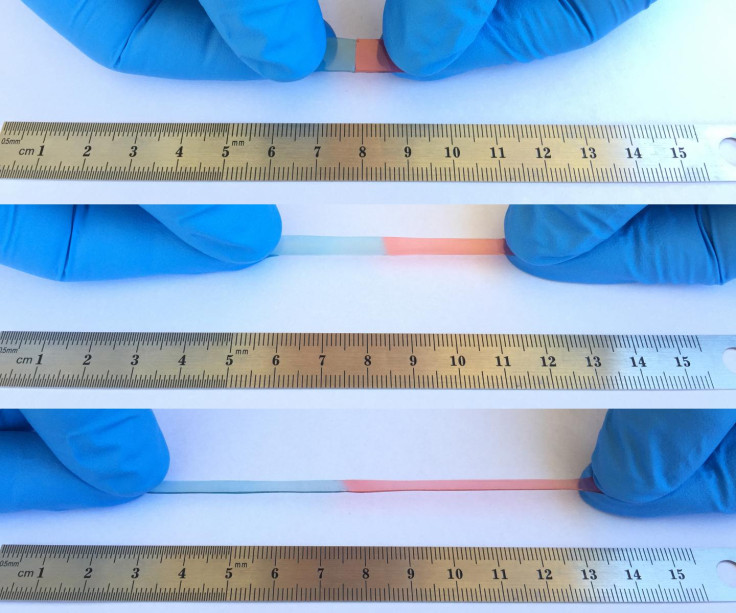Self-healing smartphone of the future: Groundbreaking new material can repair itself like human skin
The stretchable material can stitch itself back together even when sliced in two.

Researchers say they have developed a new material that could pave the way for self-repairing smartphones, robots and other electronic devices. Scientists from the American Chemical Society claim that the material, which can stretch up to 50 times its usual size, is able to heal itself "like nothing has happened" even when cut in two.
The material is flexible, transparent and shares similar properties to human skin. When exposed to electrical signals, a current is generated that creates a chemical bonding reaction between molecules.
The most obvious applications for electronics devices seems to be self-healing displays, although lead researcher Dr Chao Wang is also exploring the possibility of a self-healing lithium-ion battery.
Some smartphone manufacturers have already dabbled in "self-healing" technology, including LG, whose 2013 LG G Flex was built with a hydrogen-infused rear cover that allowed it to repair itself from minor scratches.
The material developed by the American Medical Society is a completely new innovation however, and can "automatically stitch itself back together" within one day of being sliced into pieces. This means that soft robots built from the material would be able to repair themselves – which is a good or bad thing, depending on your outlook of robot-filled future.
Wang and his team are now working on making the material more resilient against harsh environmental conditions like high humidity, which can interfere with the chemical reaction involved in the self-healing process.
"Water gets in there and messes things up. It can change the mechanical properties", said Wang. "We are currently tweaking the covalent bonds within the polymer itself to get these materials ready for real-world applications."
In which case, a protective case is still your best bet for keeping your smartphone in one piece.
© Copyright IBTimes 2025. All rights reserved.






















